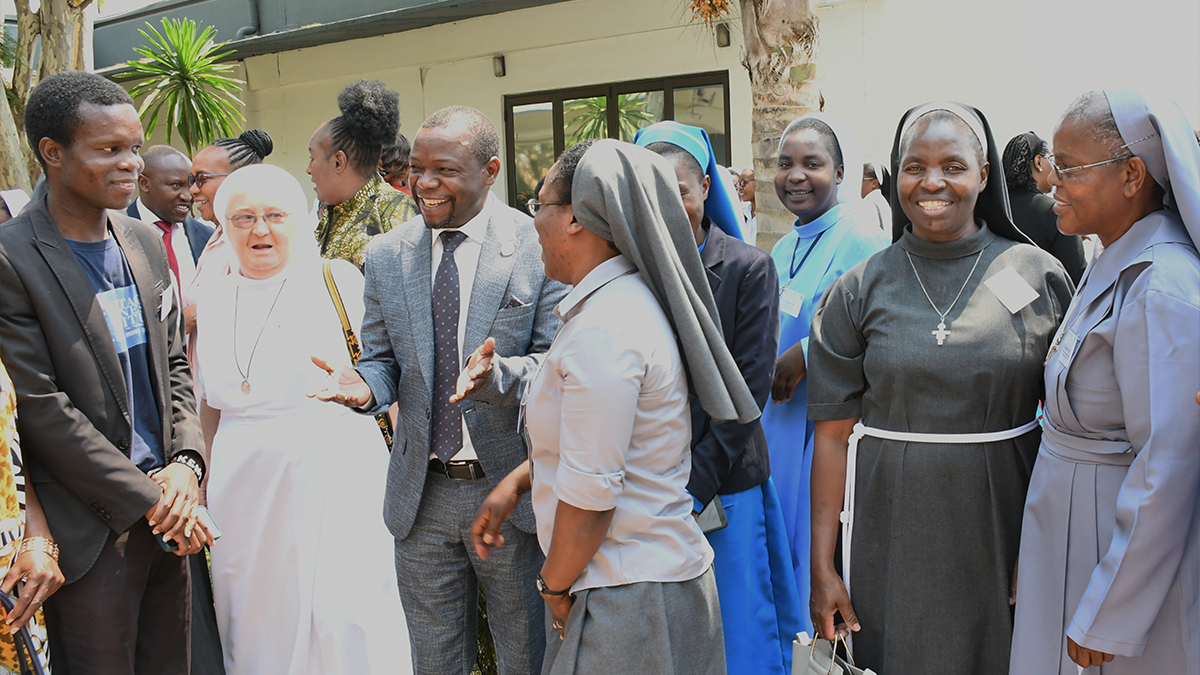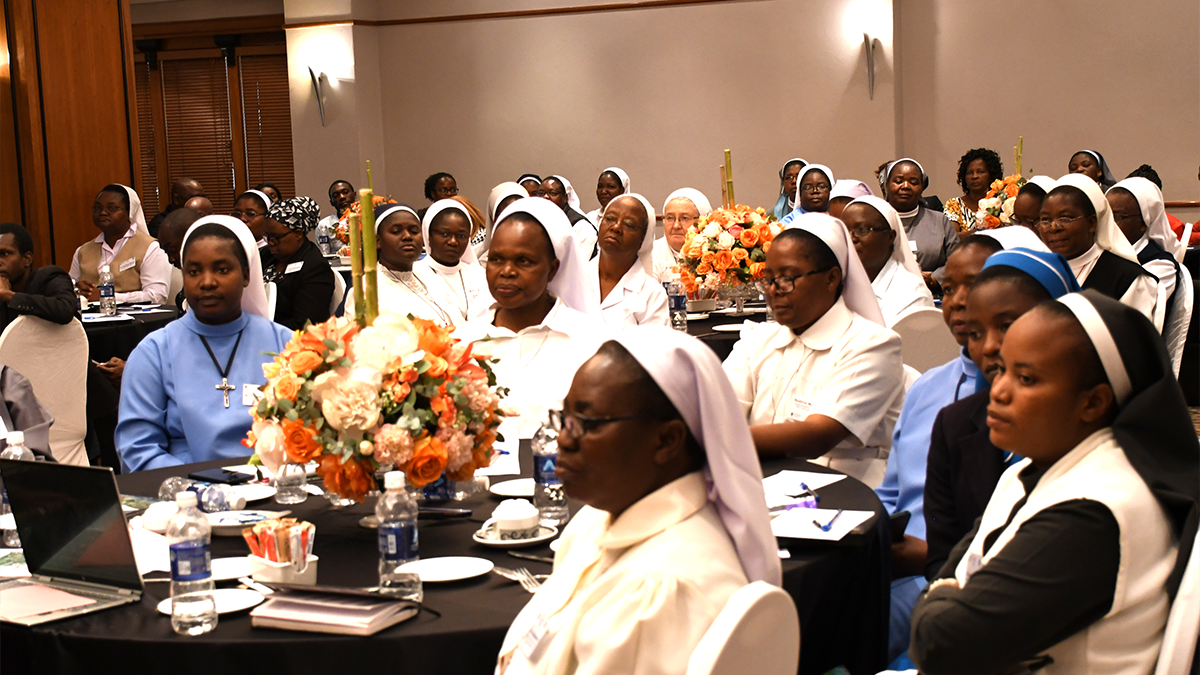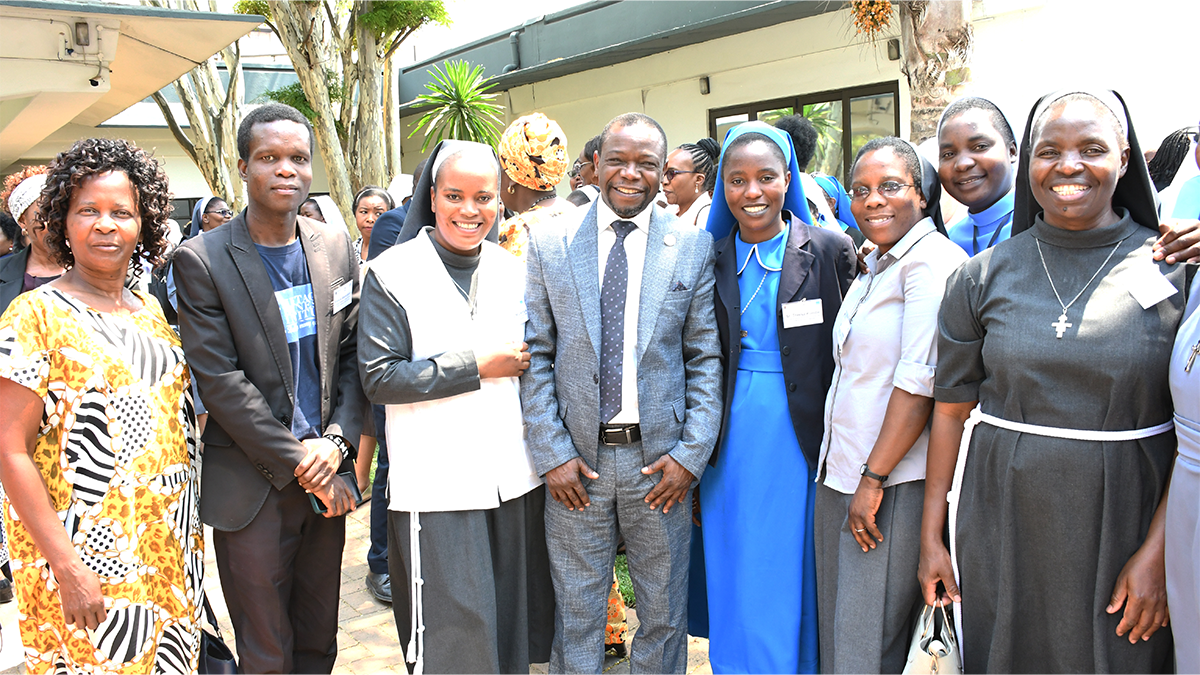In a remarkable gathering of minds the Strathmore Global Institute Annual SME conference in Zambia brought together diverse stakeholders from across the Eastern and Central Africa region. Themed; “Sustainability and Climate Resilience: Creating Opportunities for SMEs, the conference focused on empowering small and medium-sized enterprises (SMEs) and Catholic Sisters social enterprises to survive and thrive in pressing environmental challenges.
Organised by Strathmore University Business School (SBS) under the Sisters Blended Value Project (SBVP), the conference was a testament to the vital role that SMEs play in Zambia’s economy. SMEs contribute significantly to job creation, poverty alleviation, innovation, economic growth, and societal impact. According to the International Trade Centre (ITC) Survey (2018), SMEs in Zambia represent 70 percent of Gross Domestic product (GDP), create 88 percent of employment opportunities and contribute 97 percent of all businesses in the economy. Despite their great contribution to economic development, they are not immune to the challenges posed by climate change, exacerbated by limited resources and capacity, as well as the economic impacts such as that of the COVID-19 pandemic and uncertain political environments.
In her welcome remarks, Sister Rosalia Sakayombo, the President of Association of Consecrated Women in Eastern and Central Africa (ACWECA), articulated a compelling vision for the sisters and their social enterprises. She further highlighted the significance of such conferences, stating that “the conference in Zambia provides an opportunity for sisters who would want to grow their social enterprises into sustainable entities that align with the government’s advocacy for the development of our nation.” Sr. Rosalia who is known for her unwavering commitment to social and environmental development. She stated, “we share a collective responsibility to address climate change and its impacts”. Furthermore, she extended a warm invitation to the conference participants, emphasizing the importance of collective efforts in driving meaningful change and sustainable development in Zambia and the broader African region.
“Our SMEs are the lifeblood of our economy,” stated Dr. Angela Ndunge, the Deputy Executive Dean of the Strathmore University Business School, as she made her opening remarks. The SMEs “can lead the way in adopting sustainable practices” she emphasized. The lecturer in Organizational Behavior and Leadership also gave a brief background of Strathmore University as a leading outcome-driven entrepreneurial research university that has translated its commitment to excellence into significant contributions to culture, economic prosperity, and overall quality of life. As the Project Investigator of the Sisters’ Blended Value Project (SBVP), Dr. Angela informed the conference participants that SBVP aims to support Catholic Sisters to transform their social ministries into sustainable social enterprises by developing capacities, connecting them to networks, and providing them with information hubs and robust financial services. By embracing sustainable business models and practices and building resilience to climate change. “SMEs can mitigate environmental risks and unlock new business opportunities, enhancing their sustainability and viability” she concluded.
A Day of Insights and Empowerment
The conference was structured to provide attendees with valuable insights and practical knowledge. It brought together SME owners, entrepreneurs, industry experts, policymakers, and stakeholders for a day filled with enlightening discussions, expert presentations, panel sessions, and interactive workshops.
The panel session focused on strategies and best practices for SMEs and social enterprises to build climate resilience. Experts in risk assessment, disaster management, and climate adaptation shared insights on identifying climate-related risks, developing adaptation plans, and harnessing technological advancements to enhance resilience. Kanangwa Newlove, the Managing Director of Loctanuga Organics, spoke passionately about the potential of organic farming. She argued that “Organic farming will help us recover from the economic ills of climate change.” Newlove also commented on the benefit of using sustainable organic fertiliser. She said that “The best way to build our body is by taking organic food.”
Musonda Kabemba, a health expert and practitioner at one of the busiest hospitals in Lusaka, highlighted the importance of promoting oxygen supply and living health daily. She noted, “From home to vehicles and offices, we limit oxygen supply in our bodies, leading to emerging diseases. Our bodies need more oxygen supplies. We should encourage standing, gyming, cycling, and walking campaigns.” Jetty Lungu, a speaker on this panel, emphasised the multifaceted impacts of climate change. “Too much water, too little water – all have adverse effects on agriculture, energy supply, and human migration to fertile lands,” Lungu noted. “However, these risks also present opportunities, such as renewable energy, waste management, biocarbon credits, and innovative agriculture for year-round food supply.”
Later that afternoon, Lukonga Lindunda, the Founder and CEO of BongoHive, an organization dedicated to training and empowering the youth with essential business skills in Zambia, passionately addressed the audience about the critical need to incorporate entrepreneurship education into the academic curriculum. Mr. Lindunda expressed his deep concern regarding graduates who aspire solely to secure employment rather than pursuing entrepreneurship opportunities. He firmly stated, “The most effective means to combat the alarming unemployment rates in our country is by encouraging graduates to take the initiative and establish their own enterprises.” Lindunda’s message underscored the importance of fostering an entrepreneurial mindset among the youth, highlighting that by instilling business knowledge early on, we can empower them to become job creators rather than job seekers, ultimately contributing to economic growth and self-sustainability.
Government Commitment to Work with Catholic Sisters in Zambia
The keynote speech was more of a gift to the sisters than an address to the conference participants. The Minister, Hon. Eng. Elias Mubanga MP., expressed his appreciation for the opportunity to address the conference. “The conference closely aligns with the vision of Zambia’s President, His Excellency Hakainde Hichilema, who recognises the vital contribution of SMEs to the nation’s economy,” the minister stated. Minister Mubanga conveyed the government’s delight in witnessing the private sector, both local and international, acknowledge the importance of small-scale enterprises and their potential to transform the country.
The MP lauded the conference’s focus on empowering enterprises by showcasing how sustainability and climate resilience can drive long-term success. He stressed the significance of the chosen theme, emphasizing that sustainability and climate resilience are not burdensome compliance requirements but powerful drivers of innovation, competitive advantage, and economic growth. The Minister noted that it is possible to embrace sustainable business models and practices by building resilience to climate change. Through this, SMEs can mitigate environmental risks and unlock new business opportunities.
In a surprising development during the question and answer session, Catholic sisters in attendance sought ways to collaborate with the government and how to access government funds to support their initiatives, emphasising that they have been capacity built by Strathmore University through SBVP and would want to positively contribute to the development of the country. In response, Minister Mubanga invited the sisters to a meeting to discuss potential collaborations and ways in which the Catholic sisters can benefit from the development funds.
The Annual SME Conference 2023 aimed to equip participants with the knowledge and inspiration needed to seize the opportunities within sustainable practices and climate resilience. The event, which was attended by 107 participants, strived to create a future where SMEs continue to thrive, contribute to a sustainable economy, and play a significant role in addressing the challenges posed by climate change.
As deliberations continued throughout the day, stakeholders eagerly anticipated the potential for a more sustainable and resilient SME sector in Zambia, poised to lead towards a brighter economic future.
Share This Story, Choose Your Platform!
Your journey to business excellence starts here. Subscribe today and be at the forefront of innovation and leadership.











